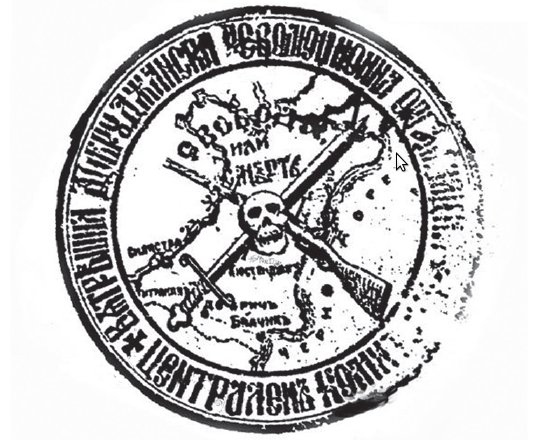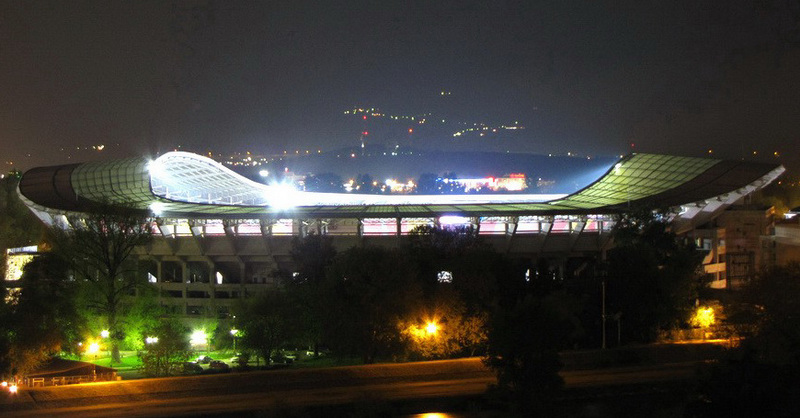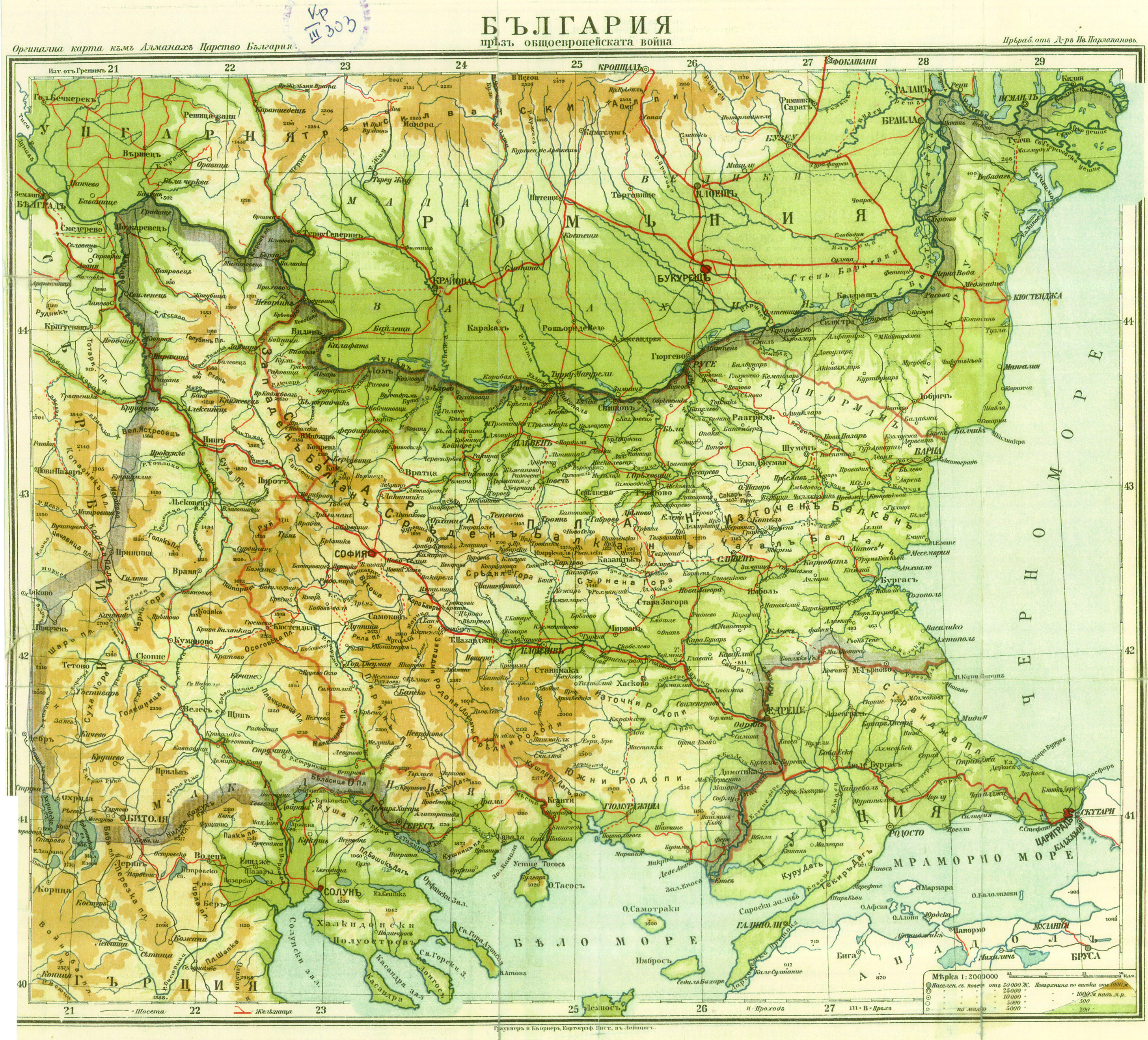|
Komitaji
Komitadji, Comitadjis, or Komitas (Bulgarian, Macedonian and sr, ذڑذ¾ذ¼ذ¸ر‚ذ¸, Serbian Latin: ''Komiti'', ro, Comitagiu, gr, خڑخ؟خ¼خ¹د„خ±د„خ¶خ®د‚, plural: خڑخ؟خ¼خ¹د„خ±د„خ¶خ®خ´خµد‚, tr, Komitacؤ±, sq, Komit) means in Turkish "committee members". It refers to members of rebel bands ( chetas) operating in the Balkans during the final period of the Ottoman Empire. They fought against the Turkish authorities and were supported by the governments of the neighbouring states, especially Bulgaria. Komitadji was used to describe the members of the Bulgarian Revolutionary Central Committee during the April uprising in 1876, and Bulgarian bands during the following Russo-Turkish War. The term is often employed to refer later to groups of rebels associated with the Bulgarian Macedonian-Adrianople Revolutionary Committees and the Supreme Macedonian-Adrianople Committee called by the Turks simply the ''Bulgarian Committees''. In interwar Greece and Yugoslavia the term was used to refer to ... [...More Info...] [...Related Items...] OR: [Wikipedia] [Google] [Baidu] |
IMARO Activists - Bulgarian Comitadjii - Captured By The Ottoman Police
The Internal Macedonian Revolutionary Organization (IMRO; bg, ذ’رٹر‚ر€ذµرˆذ½ذ° ذœذ°ذ؛ذµذ´ذ¾ذ½رپذ؛ذ° ذ ذµذ²ذ¾ذ»رژر†ذ¸ذ¾ذ½ذ½ذ° ذر€ذ³ذ°ذ½ذ¸ذ·ذ°ر†ذ¸رڈ (ذ’ذœذ ذ), translit=Vatreإ،na Makedonska Revoljucionna Organizacija (VMRO); mk, ذ’ذ½ذ°ر‚ر€ذµرˆذ½ذ° ذœذ°ذ؛ذµذ´ذ¾ذ½رپذ؛ذ° ذ ذµذ²ذ¾ذ»رƒر†ذ¸ذ¾ذ½ذµر€ذ½ذ° ذر€ذ³ذ°ذ½ذ¸ذ·ذ°ر†ذ¸رکذ°, translit=Vnatreإ،na Makedonska Revolucionerna Organizacija), was a secret revolutionary society founded in the Ottoman territories in Europe, that operated in the late 19th and early 20th centuries. Founded in 1893 in Salonica, initially, it aimed to gain autonomy for Macedonia (region), Macedonia and Adrianople Vilajet, Adrianople regions in the Ottoman Empire, however, later it became an agent serving Kingdom of Bulgaria, Bulgarian interests in Balkan politics. IMRO group modeled itself after the Internal Revolutionary Organization of Vasil Levski and accepted its motto "Freedom or Death" (ذ،ذ²ذ¾ذ±ذ¾ذ´ذ° ذ¸ذ»ذ¸ رپذ¼رٹر€ر‚رŒ). Starting in 1896 it fought t ... [...More Info...] [...Related Items...] OR: [Wikipedia] [Google] [Baidu] |
Internal Dobrujan Revolutionary Organisation
The Internal Dobrujan Revolutionary Organisation ( bg, ذ’رٹر‚ر€ذµرˆذ½ذ° ذ´ذ¾ذ±ر€رƒذ´ذ¶ذ°ذ½رپذ؛ذ° ر€ذµذ²ذ¾ذ»رژر†ذ¸ذ¾ذ½ذ½ذ° ذ¾ر€ذ³ذ°ذ½ذ¸ذ·ذ°ر†ذ¸رڈ; ro, Organizaب›ia Revoluب›ionarؤƒ Internؤƒ Dobrogeanؤƒ) or IDRO was a Bulgarian nationalist and revolutionary organisation active in Romanian Dobruja from 1923 to 1940. It was labeled a terrorist organization by the Romanian government, though in Bulgaria it was regarded as a liberation movement. The organisation was founded in 1923 under the leadership of Docho Mihaylov and on the basis of the Great Convention of Dobruja (ذ’ذµذ»ذ¸ذ؛ ذ´ذ¾ذ±ر€رƒذ´ذ¶ذ°ذ½رپذ؛ذ¸ رپرٹذ±ذ¾ر€), a Bulgarian political organisation established in 1919 to fight against Romanian rule in Southern Dobruja. The IDRO detachments fought against the widespread brigandage in the region, as well as the Romanian administration in the region. Like the Internal Macedonian Revolutionary Organisation in Macedonia and the Internal Thracian Revolutionary Organisation in Thrace, ID ... [...More Info...] [...Related Items...] OR: [Wikipedia] [Google] [Baidu] |
Militias In Europe
A militia () is generally an army or some other fighting organization of non-professional soldiers, citizens of a country, or subjects of a state, who may perform military service during a time of need, as opposed to a professional force of regular, full-time military personnel; or, historically, to members of a warrior-nobility class (e.g. knights or samurai). Generally unable to hold ground against regular forces, militias commonly support regular troops by skirmishing, holding fortifications, or conducting irregular warfare, instead of undertaking offensive campaigns by themselves. Local civilian laws often limit militias to serve only in their home region, and to serve only for a limited time; this further reduces their use in long military campaigns. Beginning in the late 20th century, some militias (in particular officially recognized and sanctioned militias of a government) act as professional forces, while still being "part-time" or "on-call" organizations. For instanc ... [...More Info...] [...Related Items...] OR: [Wikipedia] [Google] [Baidu] |
Macedonia Under The Ottoman Empire
Ottoman Macedonia may refer to: * Macedonia (region), Macedonia under the Ottoman Empire, a geographical region ruled by the Ottoman Empire from the 14th to early 20th century ** Salonica Vilayet, administrative division of the Ottoman Empire from 1867 to 1912 covering southern and eastern parts of the region ** Manastir Vilayet, administrative division from 1874 to 1877 covering western parts of the region of Macedonia ** Kosovo Vilayet, administrative division from 1878 until 1909 covering some northern parts of the region of Macedonia * Greek Macedonia under the Ottoman Empire, the territory of Macedonia, under the Ottoman Empire, corresponding to modern Greek Macedonia * Vardar Macedonia under the Ottoman Empire, the territory of Vardar Macedonia under the Ottoman Empire, corresponding to modern North Macedonia See also * Demographic history of Ottoman Macedonia, demographic history of the region of Macedonia under the Ottoman Empire * Slavic speakers in Ottoman Macedonia, ... [...More Info...] [...Related Items...] OR: [Wikipedia] [Google] [Baidu] |
Chetnik
The Chetniks ( sh-Cyrl-Latn, ذ§ذµر‚ذ½ذ¸ر†ذ¸, ؤŒetnici, ; sl, ؤŒetniki), formally the Chetnik Detachments of the Yugoslav Army, and also the Yugoslav Army in the Homeland and the Ravna Gora Movement, was a Yugoslav royalist and Serbian nationalist movement and guerrilla force in Axis-occupied Yugoslavia. Although it was not a homogeneous movement, it was led by Draإ¾a Mihailoviؤ‡. While it was anti-Axis in its long-term goals and engaged in marginal resistance activities for limited periods, it also engaged in tactical or selective collaboration with the occupying forces for almost all of the war. The Chetnik movement adopted a policy of collaboration with regard to the Axis, and engaged in cooperation to one degree or another by establishing '' modus vivendi'' or operating as "legalised" auxiliary forces under Axis control. Over a period of time, and in different parts of the country, the movement was progressively drawn into collaboration agreements: first with the puppet Gov ... [...More Info...] [...Related Items...] OR: [Wikipedia] [Google] [Baidu] |
Hajduk
A hajduk ( hu, hajdأ؛k, plural of ) is a type of irregular infantry found in Central and parts of Southeast Europe from the late 16th to mid 19th centuries. They have reputations ranging from bandits to freedom fighters depending on time, place, and their enemies. In the European lands of the Ottoman Empire, the term ''hajduk'' was used to describe bandits and brigands of the Balkans, while in Central Europe for the West Slavs, Hungarians, Romanians, and Germans, it was used to refer to outlaws who protected Christians against provocative actions by the Ottomans. By the 17th century they were firmly established in the Ottoman Balkans, owing to increased taxes, Christian victories against the Ottomans, and a general decline in security. Hajduk bands predominantly numbered one hundred men each, with a firm hierarchy under one leader. They targeted Ottoman representatives and rich people, mainly rich Turks, for plunder or punishment to oppressive Ottomans, or revenge or a co ... [...More Info...] [...Related Items...] OR: [Wikipedia] [Google] [Baidu] |
Timothy Zahn
Timothy Zahn (born September 1, 1951) is an American writer of science fiction and fantasy. He is known best for his prolific collection of ''Star Wars'' List of Star Wars books, books, chiefly the Thrawn trilogy, ''Thrawn'' series, and has published several other series of sci-fi and fantasy novels of his own original creation, in addition to many works of short fiction. Early life Zahn grew up in Lombard, Illinois and attended Glenbard East High School in Lombard. He then went on to Michigan State University, before working towards a doctorate in physics at the University of Illinois at Urbana–Champaign, University of Illinois. Career Zahn's novella ''Cascade Point'' won the 1984 Hugo Award for Best Novella, Hugo Award. He is the author of the ''Blackcollar'' trilogy and the ''COBRA (Timothy Zahn novel series), Cobra'' series (nine novels so far), fourteen Star Wars expanded universe, ''Star Wars'' expanded universe novels, including thirteen novels featuring Grand Admiral Th ... [...More Info...] [...Related Items...] OR: [Wikipedia] [Google] [Baidu] |
Novel
A novel is a relatively long work of narrative fiction, typically written in prose and published as a book. The present English word for a long work of prose fiction derives from the for "new", "news", or "short story of something new", itself from the la, novella, a singular noun use of the neuter plural of ''novellus'', diminutive of ''novus'', meaning "new". Some novelists, including Nathaniel Hawthorne, Herman Melville, Ann Radcliffe, John Cowper Powys, preferred the term "romance" to describe their novels. According to Margaret Doody, the novel has "a continuous and comprehensive history of about two thousand years", with its origins in the Ancient Greek and Roman novel, in Chivalric romance, and in the tradition of the Italian renaissance novella.Margaret Anne Doody''The True Story of the Novel'' New Brunswick, NJ: Rutgers University Press, 1996, rept. 1997, p. 1. Retrieved 25 April 2014. The ancient romance form was revived by Romanticism, especially the histori ... [...More Info...] [...Related Items...] OR: [Wikipedia] [Google] [Baidu] |
Science-fiction
Science fiction (sometimes shortened to Sci-Fi or SF) is a genre of speculative fiction which typically deals with imaginative and futuristic concepts such as advanced science and technology, space exploration, time travel, parallel universes, extraterrestrial life, sentient artificial intelligence, cybernetics, certain forms of immortality (like mind uploading), and the singularity. Science fiction predicted several existing inventions, such as the atomic bomb, robots, and borazon, whose names entirely match their fictional predecessors. In addition, science fiction might serve as an outlet to facilitate future scientific and technological innovations. Science fiction can trace its roots to ancient mythology. It is also related to fantasy, horror, and superhero fiction and contains many subgenres. Its exact definition has long been disputed among authors, critics, scholars, and readers. Science fiction, in literature, film, television, and other media, has become po ... [...More Info...] [...Related Items...] OR: [Wikipedia] [Google] [Baidu] |
FK Vardar
FK Vardar Skopje ( mk, ذ¤ذڑ ذ’ذ°ر€ذ´ذ°ر€ ذ،ذ؛ذ¾ذ؟رکذµ), or simply Vardar, is a football club based in the capital city of Skopje, North Macedonia, North Macedonia. The club was founded in 1947 and currently competes in the Macedonian Second Football League. They are the most successful club in Macedonian football, having won eleven Macedonian First Football League, Macedonian First League titles, five Macedonian Football Cup, Macedonian Cups, two Macedonian Football Supercup, Macedonian Super Cups, and one Yugoslav Cup. In 2017, they became the first Macedonian club to qualify for European competitions. History Beginning After WW2 FK Vardar was established with the merger of city rivals Pobeda Skopje, FK Pobeda(1919) and Gragjanski Skopje, FK Makedonija(1922), in the hall of cinema "Vardar" on 22 July 1947. The foundation assembly had decided the club's color to be blue and it was, but already at the next assembly the decision was changed to red and white. FK Pobeda has compete ... [...More Info...] [...Related Items...] OR: [Wikipedia] [Google] [Baidu] |
Ohrana
Ohrana ( bg, ذر…ر€ذ°ذ½ذ°, "Protection"; ) were armed collaborationist detachments organized by the former Internal Macedonian Revolutionary Organization (IMRO) structures, composed of Bulgarians in Nazi-occupied Greek Macedonia during World War II and led by officers of the Bulgarian Army. Bulgaria was interested in acquiring Thessalonica and Western Macedonia, under Italian and German occupation and hoped to sway the allegiance of the 80,000 Slavs who lived there at the time. The appearance of Greek partisans in those areas persuaded the Axis to allow the formation of these collaborationst detachments. However, during late 1944, when the Axis appeared to be losing the war, many Slavophone Nazi collaborators, Ohrana members and VMRO regiment volunteers fled to the opposite camp by joining the newly founded communist SNOF. The organization managed to recruit initially 1,000 up to 3,000 armed men from the Slavophone community that lived in the western part of Greek Macedonia. Backgr ... [...More Info...] [...Related Items...] OR: [Wikipedia] [Google] [Baidu] |









